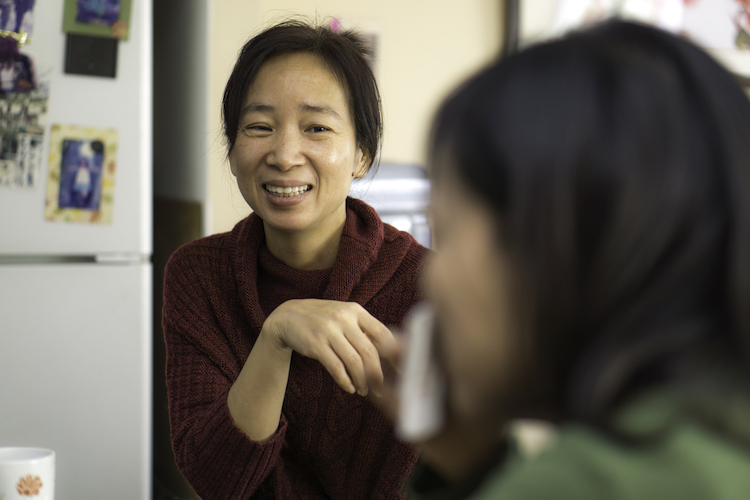
Written by Joan Baran, PhD, Clinical Director at CHC
When we think of teens maturing, we think of all the changes they are going through: bodies growing, thinking becoming more abstract, and peers’ views considered increasingly important. A key development objective is identity formation: teens figure out who they are, what they value, and who they want to be.
What also changes is you. Your parenting style evolves as your role transforms from director (“Don’t forget to hold the door open;” “Write grandma a thank you note;” “Please put your laundry away.”) to coach (“Mistakes help us learn. What did you learn from that?;” “This is tough, but I know we can get through it;” “I wonder how X is feeling?”) Your evolution as a parent allows teens to become confident drivers of their own lives and accept responsibility for the consequences of their actions.
Driving is an effective metaphor for teen decision-making: the parent is beside the teen, offering ideas and suggestions, with the teen’s choices yielding the outcome. Only rarely does the parent need to step in and “take over the wheel.” The ride is often influenced by factors along the way (e.g., construction, traffic, convenience, experience). Your teen may go from the thrill of passing the driving test and newfound freedom to the stress of potential accidents and speeding tickets. Yet, with your support and guidance, they gradually grow confident and ready to drive without you in the car. This shift in thinking and behavior extends to making decisions about friends, getting a job, and navigating the many pathways into young adulthood.
How can you support this evolution? By staying C.A.L.M.
What is C.A.L.M.?
Connect: Before you tackle a problem, connect. Ask questions: “What are you listening to (with your earbuds on)?” “Did you hear the latest (insert something you heard on the radio on your way home)?” “Did you know (insert something you read in the school paper here)?” Taking a moment to connect can be critical to create the environment to problem-solve together.
Ask don’t tell: When challenges arise, tackle them together. “We only have $X, how are we going to make it stretch to get what you want?” “How much time is there between these two activities that you want to do?” “How important is it for you to do X?” “What does your teacher think?”
Lead with problem solving: “What ideas do you have to help solve this situation?” “Is there anybody else in a similar conflict?” “What would happen if you do X?” You can even list out the pros and cons together, modeling that there may not be one perfect solution, but there may be a best-case scenario.
Map a plan: There are usually many ways to arrive at the same destination. While you may think your route is better based on past experience, your teen can only take ownership and gain confidence if the choice is ultimately theirs. Ideally, you can go back, with the benefit of hindsight, and reflect. (“Now that we know the outcome, was there an alternative we didn’t think of?” “What would you do differently now that you know how things turned out?”)
Final thoughts
It’s never too early or too late to parent with C.A.L.M. Remember that children and teens follow your lead, and as you practice together, they internalize and develop those skills for future decisions and relationships. So keep C.A.L.M. and carry on!
Do you need someone to talk to? CHC can help. We invite you to call or email our Care Coordinators at 650.688.3625 or careteam@stage.chconline.org to set up a free 30-minute consultation.






